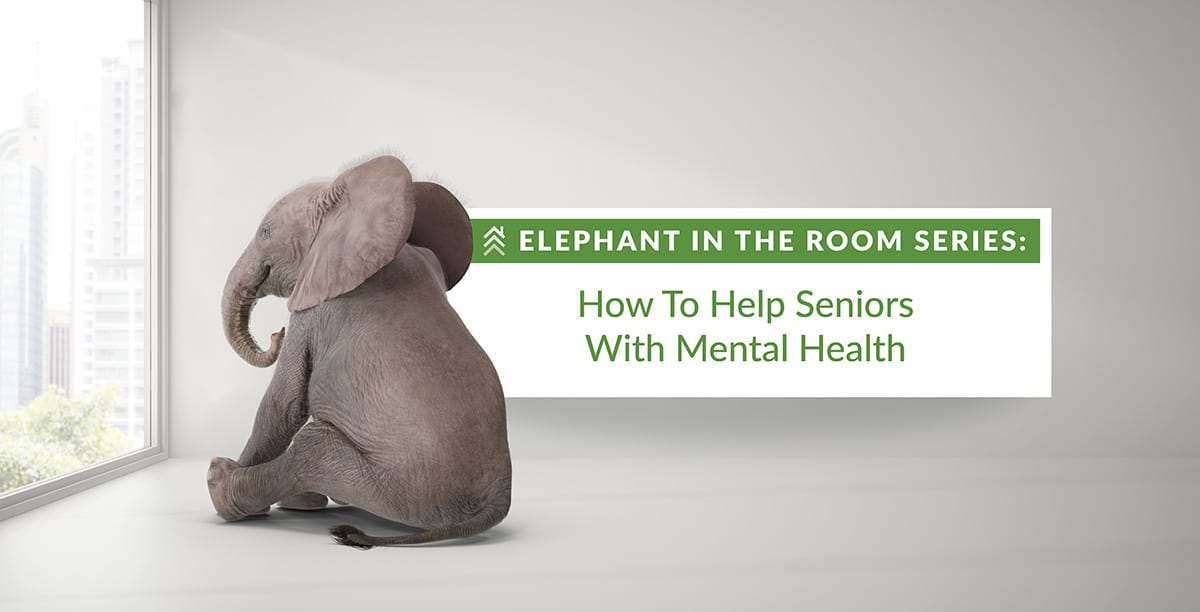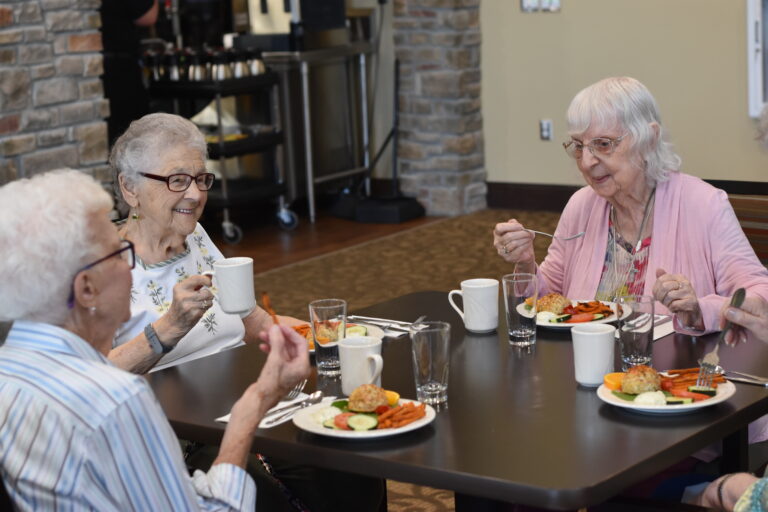
Aging is a gift denied to many. Becoming grandparents, having the time to stop and smell the flowers, or playing a round of golf on a weekday morning are things we hope to enjoy as we age. While those things make us happy, at the same time, we may lose loved ones more often, undergo physical changes, and find that daily activities may become difficult. All of the changes that come with age can take a toll on our mental health.
According to “SAMHSA” (The Substance Abuse and Mental Health Services Administration), by 2030, there could be around 15 million older adults experiencing mental illness. Because May is Mental Health Awareness month, we’re going to highlight some common mental illnesses among seniors, how to recognize them, and how we can encourage them to seek help.
It’s important to know that feeling depressed, having anxiety, or experiencing cognitive impairment is not a normal part of aging. It’s natural for people of all ages to have periods of sadness or stress, especially when going through a major life event. However, symptoms that don’t subside may be a sign that something more serious is happening.
Find Senior Living Near Me
The National Institute of Mental Health defines depression as a serious mood disorder. It can cause symptoms that impact every aspect of our day, such as our thoughts and behaviors.
Depression in people who are of retirement age can be harder to detect, because some of the most common symptoms could be confused with other illnesses like dementia, heart disease, Parkinson’s, arthritis, or Alzheimer’s. Because of this, seniors could be suffering from more than one health problem and not realize it, or seek treatment for depression.
Depression Symptoms:
Anxiety is also a common feeling among adults. Anxiety is explained by the National Library of Medicine as a feeling of worry or fear. We’ve all met a “nervous Nellie” in some way, shape, or form, or maybe it’s yourself. What’s important to realize about anxiety is that some can be healthy, like worrying about a tornado warning. Weather warnings are normal things to be concerned about. For seniors, the unknowns of the future can cause extreme worry. Sometimes, adding support at home or moving into a senior living community can help relieve these feelings. It’s important for seniors who appear constantly overwhelmed to seek professional medical advice since anxiety could be a disorder if the symptoms don’t subside.
Anxiety Symptoms:
Cognitive impairment is common among seniors as well. Cognitive impairment ranges from mild to severe, and it can have a multitude of causes. Mayo Clinic explains that cognitive impairment may present as forgetfulness, slight confusion, or misplacing things, in the milder stages. Medication side effects, lack of sleep, dehydration, or a urinary tract infection “UTI” may all cause confusion or forgetfulness. Cognitive impairment may be temporary if someone is overly tired or dehydrated, for instance. It could also be progressive, as in the case of an Alzheimer’s diagnosis.
Symptoms of a Cognitive Impairment:
Encourage Professional Support:
If your senior loved one is experiencing depression or anxiety, or you’re noticing confusion and forgetfulness, talk to them. Begin your conversation in a way that comes from love rather than fear. Be open, honest, and nonjudgmental. Calmly help your loved one understand that you’re concerned and would like to find out why they’re not feeling like themselves and if there’s a treatment to help.
Because of the stigma that comes with mental health issues, your loved one may try to avoid finding help. If they express fearfulness or shame, remind them that when we’re sick, we all find help from doctors. If we had an infection or injury, we would see a doctor for those things. We must try to normalize seeking help for mental health like we would for a physical condition.
If you’re unsure what to do or who can help, call the Substance Abuse and Mental Health Services Administration’s helpline: 1-800-662-HELP (4357).
Let Edgewood help!
With excellent care and company, seniors can live longer and stronger! Edgewood’s assisted living and memory care communities offer friendly staff who are there to help 24 hours a day.
When seniors have access to what they need, like balanced nutrition and proper hydration, each day, they can worry less about grocery shopping and cooking. They can also say goodbye to meals alone, which they may forget to eat or choose to skip. Forgetting to eat meals, drink fluids, or take prescribed medications can worsen mental health and other conditions for seniors.
Each activity and interaction we have with residents offers us the chance to check in with them. From our nurses to our maintenance staff, we’re all trained to notice changes in residents’ physical and mental health. If your loved one begins to display symptoms of a possible mental health issue, we can add increased safety checks and communicate our observations to our internal health network to make referrals for professional support.
We encourage socializing, activities, and maintaining family connections by offering on-site event opportunities that everyone can enjoy. A life-enrichment calendar filled with social gatherings and hobbies can help prevent isolation. Activities like daily exercise groups can help both physically and mentally, and they may reduce the risks of developing depression and anxiety.
If you’re interested in exploring our senior living options at Edgewood Healthcare, please contact us today at info@edgewoodhealthcare.com.




